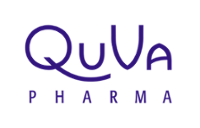
During the pandemic, 503B compounding facilities became a pipeline for much-needed drugs to treat hospitalized patients.
Well before the COVID-19 pandemic shocked the U.S. healthcare system, hospitals were coping with widespread drug shortages. In fact, in 2019, 282 active shortages were reported, according to the U.S. Food and Drug Administration (FDA).
Such shortages not only compromise hospitals’ ability to optimally care for patients, they also put a significant strain on health systems. According to an October 2019 FDA report, hospitals spend an additional $359 million annually on labor to deal with shortages and an additional $200 million to substitute alternatives. The FDA said that 71% of pharmacies had reported the inability to provide patients with their recommended drug, while 75% reported that patient treatment was delayed.
The COVID-19 pandemic not only exacerbated pre-existing shortages of dozens of essential drugs, but also created new shortages.
“Before the pandemic, you had this rather predictable balance between drug product supplies based around elective procedures and standard inpatient and outpatient care,” says David Short, vice president of quality at QuVa Pharma, an FDA-registered 503B outsourced compounding organization that supplies sterile, ready-to-administer drug products to many leading U.S. health systems. “When COVID hit, that predictability was lost.”
Responding to Need
As the pandemic grew worse, health systems searched for different pipelines to provide specific drugs to treat patients. Before the pandemic, large saline bags commonly used to treat ICU patients were already in inconsistent supply, and many hospitals ran dry soon after the pandemic began. Key medications used on hospitalized COVID-19 patients—including norepinephrine, vancomycin, midazolam and fentanyl—were also in short supply.
According to Vizient Inc., a healthcare performance improvement company that works with 3,100 health systems nationwide, demand for anesthetics and sedatives increased 272% between January and April 2020, while demand for analgesics increased 104%.
“Demand for many drugs became so high that drug manufacturers simply couldn’t keep up,” says Mittal Sutaria, vice president of contracting and program services for Vizient.
During this time, “QuVa began hearing from hospitals and health system leaders from across the U.S. to see if our 503B outsourced compounding facilities could supply them with particular medications,” Short says.
One of those health systems was Wellstar, which operates 11 hospitals across Georgia. According to Susan Jackson, executive director of pharmacy system operations at Wellstar, their hospitals turned to QuVa Pharma—its primary 503B partner—to help fill the gaps and supply many of the IV medications it needed during the COVID-19 pandemic.
“Having a 503B in that space ensured that we had sufficient quantity to care for our patients,” Jackson says.
Needs also shifted during the pandemic, she says. For example, Wellstar used larger IV bags to reduce the frequency of visits to patient rooms to change bags, which helped to optimize PPE use and limit team member exposure.
Because Wellstar was already a partner of QuVa, it was able to fill those shortages more quickly than other health systems that didn’t already have a 503B facility partner in place. “QuVa was an important part of Wellstar’s overall pharma strategy. Through the partnership, we were able to maintain access to several different treatments for COVID-19 patients—including common medications used to treat pain that typically were bought directly from drug manufacturers,” Jackson adds.
Filling Gaps
One major advantage 503B outsourcing facilities have when it comes to addressing drug shortages is that the FDA designed them specifically to help supply chain issues.
In May 2020, the FDA recognized that the pandemic had such an outsized impact on global supply chains that it further revised its guidelines for compounding facilities, allowing them to make drugs using active pharmaceutical ingredients. That gave 503Bs the much-needed ability to respond to the immediate needs of hospitals that were serving COVID-19 patients.
While hospital pharmacies could also technically compound those in-demand drugs on site, the sheer volume needed made that unrealistic. “During the pandemic, hospitals have had to put all of their resources toward caring for patients—not making drugs in bulk,” Short adds.
“QuVa’s ability to pivot quickly and work closely with its customers and supply partners to address hospitals’ immediate supply and emerging clinical needs became a major asset to them in supporting patient care,” says Peter Jenkins, chief development officer and co-founder at QuVa Pharma. He adds that QuVa’s position between suppliers and working directly with hospitals enabled it to quickly leverage its product development capabilities to develop new product presentations that hospitals requested during the pandemic, including dexamethasone sodium phosphate (a corticosteroid) in IV bags, midazolam in a cassette and dexmedetomidine syringes.
“Hospitals were discovering these combinations of drugs that were helpful in supporting hospitalized COVID patients,” Short says. “At QuVa, after seeing the gaps and hearing the requests from our hospital customers, we realized we could help them by delivering a high-quality solution.’”
At their production facilities, QuVa puts drugs in ready-to-administer formats—pre-filled in IV bags and syringes. Because it can do extended stability testing, most of the products QuVa makes can be stored for up to 90 days—a much longer shelf life than what hospitals can produce on site. This type of testing is not practical for hospitals, as they can only keep the same medications compounded on site for a week or two.
As the pandemic pressure-tested every aspect of healthcare, Jenkins says the work QuVa was able to achieve with its partners has strengthened past relationships while proving how much of an asset 503Bs can be to those less familiar with the benefits of outsourced, sterile injectable compounding.
“When you’re in these types of emergency situations—which thankfully don’t happen very often—you really see the value of having a 503B partner to communicate and collaborate with,” he adds.
Compare your current 503B partners to QuVa by downloading the checklist
Read more about how QuVa Pharma is leading the way in the 503B compounding industry to raise the bar for quality and safety.



